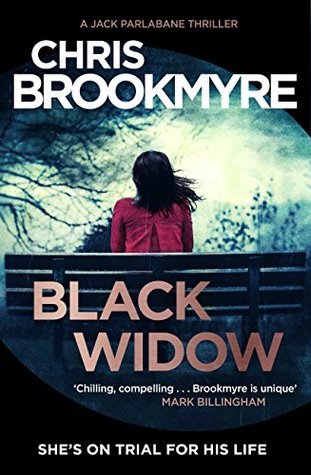Glasgow’s crime world of the 70s has three main crime boss figures: John Rhodes, Cam Colvin and the up-and-coming Matt Mason. When lawyer Bobby Carter, money man for Cam Colvin, is found stabbed to death behind a pub in Rhodes territory, naturally suspicion falls onto Rhodes and his men. Carter was a “career criminal. Or rather, a venally clever lawyer who didn’t so much rub shoulders with criminals as steep in the same polluted bathwater.” Carter’s death could be a message, a signal of war, yet to D.C Jack Laidlaw it’s just too obvious and he suspects that there’s more to the murder. Given the power-grab ramifications of the murder, it’s a sensitive case that must be handled carefully. Laidlaw already has a reputation for ‘rubbing people the wrong way,’ and he isn’t easy to work with. His skill as a detective though is respected and it’s acknowledged that he “seems to have a sixth sense for what’s happening on the streets.”
As Laidlaw investigates, he learns that Carter, with a gorgeous wife Cam Colvin is all-too happy to console, was a womaniser. And one name in the harem sticks out: Jennifer Love, a go-go dancer at Whiskies. The crime world is tightly-knit and it’s hard to penetrate when it comes to solving this murder, but Laidlaw, obsessive when it comes to his cases, keeps digging, and the same names keep floating up.

All cities are riddled with crime. It comes with the territory. Gather enough people together in one place and malignancy is guaranteed to manifest in some form or other. It’s the nature of the beast. In the awareness of the citizens the condition usually lies dormant. The preoccupations of our daily lives obscure any dramatic sense of threat.
The Dark Remains is a prequel to the other Laidlaw books. This was unfinished at the time of author William McIlvanney’s death and the book was subsequently finished by Ian Rankin. The gloomy world of 1972 Glasgow, divided into separate worlds by crime territory, is full of seedy pubs, low-rent hotels, lonely, neglected wives, and violent crims hoping to do their boss a favour before the boss even knows he wants one. Laidlaw is a troubled character who does everything possible to avoid his home life and family responsibilities. But the division of the two worlds, home and crime, are created in such a way that’s it’s understandable (but not forgivable) that Laidlaw finds it uncomfortable to straddle both worlds in one day. Going domestic takes the edge off of Laidlaw’s predatory drive plus it’s much easier to check out of his troubled domestic life, avoid those difficulties, and submerge himself into the dark side of Glasgow. I’m not a huge fan of police procedurals but the case kept my interest here. Laidlaw is a strange one–he likes to cowboy his cases solo, and then he tends to philosophize about human nature. This is tedious to Laidlaw’s workmates, but Laidlaw’s approach, when applied to human nature, works.
Review copy










You must be logged in to post a comment.